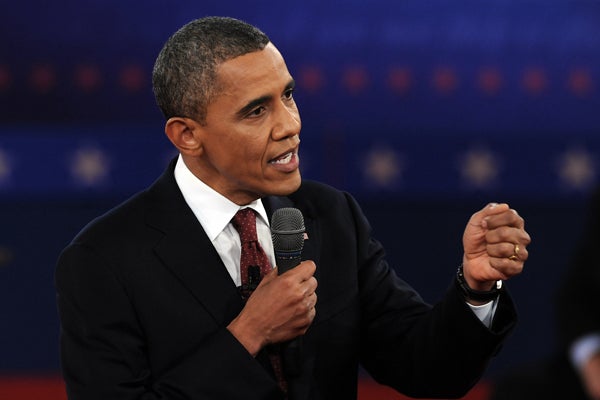The Top 3 Special Interests Expecting Favors During Obama’s Second Term
Lachlan Markay /
President Obama enjoyed support from some key constituencies in his successful reelection bid. Some of those groups are surely expecting to benefit from another four years of his Administration. Here are three groups likely to get some sort of payout during a second Obama term.
Big Labor
Labor unions have spent billions since 2005 to elect friendly politicians, including President Obama. Government unions went “all out for the president,” noted Heritage’s James Sherk and Ashley Shelton on Tuesday. And that only tells part of the story. “The hours spent by union employees working on political matters were equivalent in 2010 to a shadow army much larger than President Barack Obama’s current re-election staff,” according to the The Wall Street Journal.
The Obama Administration’s activist National Labor Relations Board (NLRB) has consistently served Big Labor’s agenda on the federal level. It makes little effort to mask its crusades against Boeing or workplace democracy generally with a veneer of neutrality towards the nation’s labor policy.
With Congress likely to remain highly polarized, expect the NLRB to continue promoting an agenda explicitly designed to bolster the ranks of the nation’s unions when the Administration can’t garner support for its policy proposals in the legislature.
Obama’s pro-union agenda could even revive “card check,” which would abolish secret-ballot elections for workplace unionization. AFL-CIO president Richard Trumka says he expects card check will come up during Obama’s second term.
Environmentalists
“The reelection of President Obama and Vice President Biden is an affirmation of the role of government in charting America’s clean economy future,” said BlueGreen Alliance executive director David Foster after Tuesday’s results came in.
Energy Action Coalition executive director Maura Cowley expressed a similar sentiment: “it’s clear that taking bold and urgent action on the climate crisis must be at the top of Obama’s list.”
As Heritage’s Diane Katz recently noted, the Environmental Protection Agency reportedly held off on issuing major regulations until after the election. With Obama in office for another four years, expect him to advance many of the regulations he stalled for fear of the political fallout that would result from the depressing impact on the American economy.
The Institute for Energy Research (IER) has compiled a comprehensive list of EPA regulations that may be coming down the line during a second Obama term. Katz reported that many of these measures are expected to collectively drain the economy of hundreds of billions of dollars, and massively reduce employment in affected industries.
IER also notes that the EPA is likely to continue settling out of court with environmental groups that sue with the knowledge that a friendly EPA will work to accommodate their radical demands.
Green Energy Companies
As Heritage’s Rachael Slobodien documented yesterday, 19 taxpayer-backed green energy companies have recently filed for bankruptcy. Despite that record, federal handouts to such companies are likely to continue under Obama, who made “green jobs” a pillar of his reelection campaign.
The president’s victory on Tuesday makes an extension of the wind production tax credit (PTC) more likely during the lame duck session of Congress, according to industry observers.
If the PTC extension passes, it will mark the first post-election handout to green energy companies, but by no means the last. “President Obama has been a tremendous supporter of solar energy,” said Solar Energy Industries of America CEO Rhone Resch in reaction to the election, “and we look forward to continuing to work with the Obama Administration over the next four years.”
Some observers expect the Obama Administration to pursue its green strategies via the military, which affords the executive more discretion to implement such an agenda. The Navy’s efforts during Obama’s first term to promote a “green fleet” have benefitted companies and individuals with political ties to the Administration.

